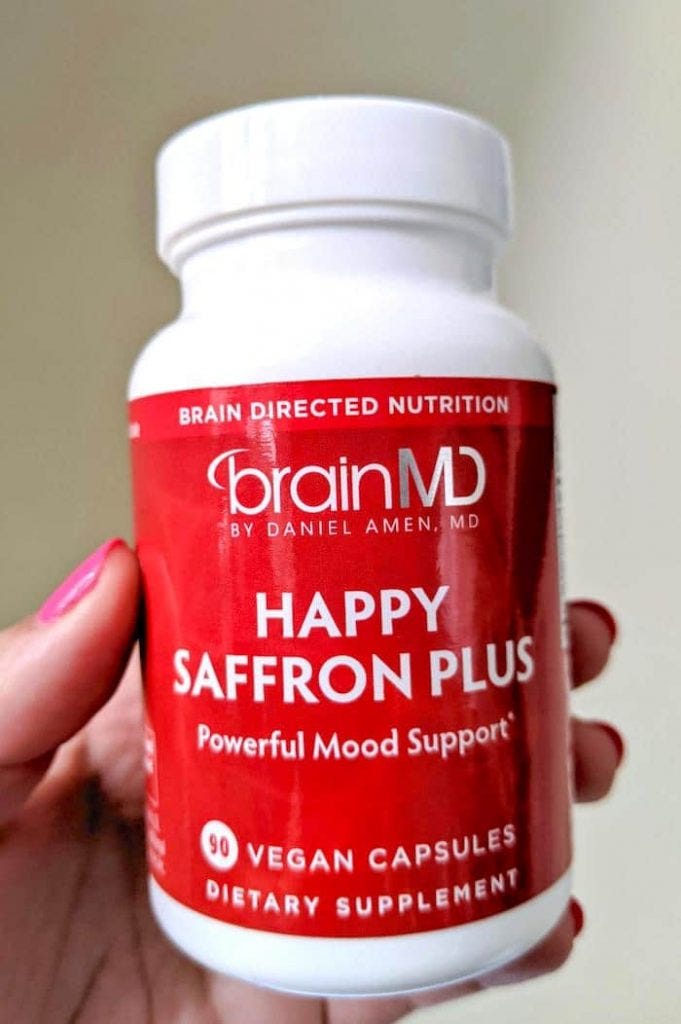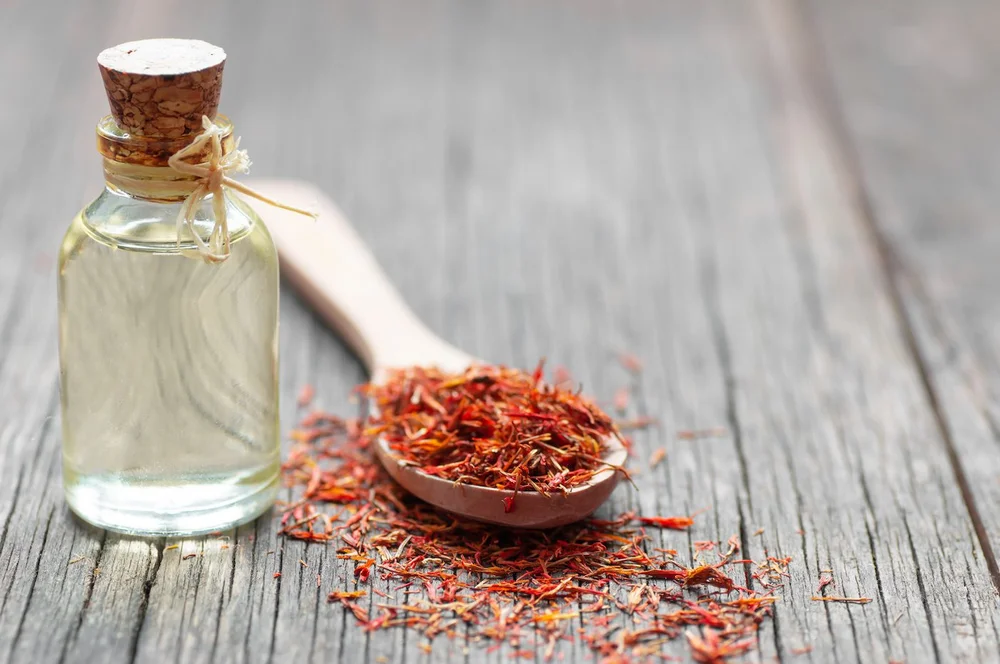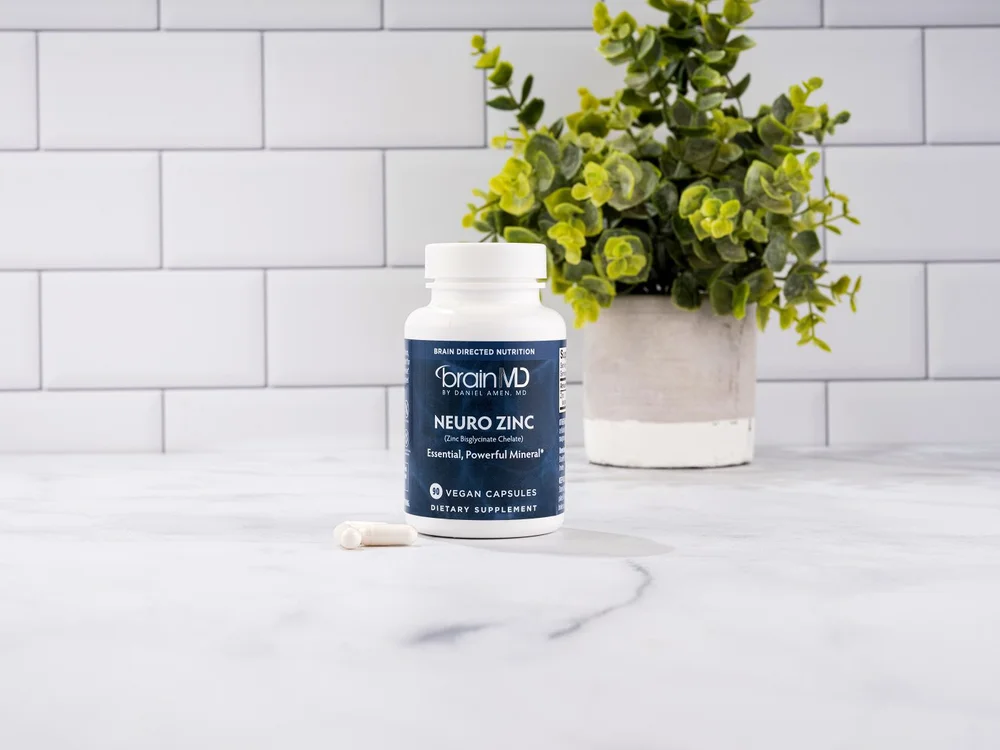Do You Know About These 3 Unexpected Benefits of Saffron?
According to the National Institutes of Health (NIH), 38 million Americans suffer with mood problems each year, and 78 million will be afflicted at some point in their lives. Left untreated, mood issues can have serious personal, relational, occupational, financial, and social consequences.
The Problem with Mood Problems
In the past, some people associated mood problems with a weak will, a character flaw, or heredity. Recent brain research has revealed that these challenges are, in large part, the result of chemical changes in the brain. Depressive thoughts are associated with low activity of certain neurotransmitters in the brain, especially serotonin, norepinephrine, and dopamine, as well as less than optimal levels of nutrients such as folate, vitamin B12, vitamin D, and omega-3 fatty acids.
When people with persistent anxious or depressive thoughts seek help (typically from a primary care physician or therapist), most receive medication as the only intervention. However, these medications often have significant side effects, especially in the areas of sexual dysfunction, weight gain, and relapse.
Natural Mood Support
Cultures around the world have cherished saffron for centuries and have cultivated it for a variety of purposes. Saffron has been used as a culinary spice, digestive aid, aphrodisiac, and mood-booster. It’s the only spice able to give color, flavor, and aroma to foods.
Derived from the female reproductive parts (stigma) of the flower of Crocus sativus, saffron is produced today just as it has been since ancient times…by hand. The stigmas must be carefully handpicked and dried since machines can’t perform this delicate work.
It’s staggering to consider that it takes 4,500 Crocus sativus flowers just to produce one ounce of saffron spice. This labor-intensive extraction process has made saffron the most expensive spice in the world.
Saffron = Mood Boost
Saffron has been extensively researched in double-blind clinical trials, especially for mood. Several meta-analyses (sophisticated statistical analyses of pooled data from as many as 12 trials) found saffron to be highly effective for mood. Saffron is a valuable addition to comprehensive personalized regimens for mood improvement.
Just how saffron works to have this highly impressive mood effect isn’t clear at this time. What is clear is that saffron has considerable antioxidant power, due to a uniquely diversified content of carotenoids known as crocins, along with picrocrocin, safranal and well over 100 other plant chemicals with potential health benefits. Some of these work within cell membranes, which are fundamental to the body’s ability to make and use energy, and to the brain’s trillions of synapses that functionally connect the nerve cells.
In addition to its well-established mood benefits, there are other, lesser-known, aspects of saffron that can help support a healthy lifestyle…
3 Unexpected Benefits of Saffron That Can Improve Your Health

1. Supports Learning and Memory
Five clinical trials conducted to date suggest saffron has a beneficial impact on cognitive function. As with mood, the current clinical evidence suggests saffron could be a useful addition to a personalized regimen to improve memory and perhaps also learning, concentration, and other higher brain functions that can deteriorate with advancing age.
2. Helps Suppress Cravings
A patented saffron extract called Satiereal® was found to reduce food cravings and other inappropriate food habits in a clinical trial. It reduced feelings of hunger and lowered the frequency of snacking by supporting appetite moderation and healthy weight management.
3. Promotes Healthy Libido
Another benefit of saffron observed in its clinical trials for mood, is that it improved sex drive in men and women who experienced difficulties while on a mood medication regimen.
Saffron + Curcumin
Research has demonstrated that curcumin, the complex of 3 naturally occurring active chemicals in the turmeric root, is a potent and safe ingredient for people with mood and memory challenges.
A study published in the Journal of Affective Disorders looked at the efficacy of both curcumin and saffron in treating major mood issues. In this randomized, double-blind, placebo-controlled study of 123 individuals with major mood disorder, it was shown that doses of curcumin and combined curcumin/saffron were effective in reducing anxious and depressive thoughts.
If you struggle with maintaining a positive mood or just want to have more happiness in your life, try BrainMD’s mood-boosting saffron supplement…
Happy Saffron Plus

Why You Need It
In the U.S., at least 1 in 5 people endure serious mood problems, and at least 1 in 4 experience significant feelings of anxiousness. Happy Saffron Plus was developed from clinical research with three nutraceuticals for brightening mood, coping with anxious feelings, and enhancing focus while under mental strain.
Benefits of Happy Saffron Plus
Based on considerable clinical and other scientific research, this formula offers:
- Powerful support for positive mood
- Increased capacity for coping with anxiousness
- Enhanced alertness while under stress
What’s in Happy Saffron Plus?
Here’s a closer look at the 3 ultra-pure, high-potency ingredients in Happy Saffron Plus:
affron® Standardized Saffron Extract
This is a highly concentrated and standardized nutraceutical extract of saffron, a spice that has been used in the Middle East for at least 2600 years. Modern clinical research with this specific ingredient fully supports the traditional reverence for saffron’s mood-elevating effects.
In clinical trials at a dose of just 28 mg per day, this extract has performed extremely well for improving mood and anxiousness in both adults and adolescents. In a recent trial it was also found to improve quality of sleep in adults with sleep complaints.
Longvida® Optimized Curcumin Extract
The turmeric root has paralleled saffron as an herbal greatly revered for its wide range of benefits, for at least 2600 years. However, consuming turmeric root doesn’t get much curcumin into the bloodstream, and nutraceutical technology has now overcome this problem. The Longvida® curcumin preparation, developed at the University of California, Los Angeles, features excellent absorption of curcumin and has worked well in clinical trials at 400 mg per day or higher.
Besides being found to improve mood in clinical trials, Longvida was recently shown to improve memory as well.
Zinc, as Glycinate
This mineral is essential for the functioning of at least 300 enzymes essential for our life processes, and about 2,000 different human proteins. People with mood problems typically have low blood levels and supplementing with zinc often enhances mood. In contrast to zinc sulfate can cause digestive discomfort, zinc glycinate is very well tolerated.
This combination of zinc with affron® saffron and Longvida® curcumin offers great promise to elevate mood, perhaps even in individuals who may not feel they have a mood problem. All three of these ingredients are documented to improve mood in controlled human clinical trials.
Happier people tend to be healthier, live longer, have better relationships, and experience more success in life. Boost your bliss with Happy Saffron Plus. Try it today!
At BrainMD, we’re dedicated to providing the highest purity nutrients and standardized herbal ingredients to support your mood, focus, and overall well-being. For more information about Happy Saffron Plus and our full list of supplements, please visit us at BrainMD.




Is there a code for the free bottle of saffron to try?
Hi there thank you for your comment! Unfortunately, we do not have a code for a free bottle of Saffron. Keep a lookout and join our newsletter to be informed of our promotions as we do have great discounts at times.
Is Happy Saffton Plus safe for someone who has bipolar disorder and is profoundly depressed?
Hello Jessica, thank you for your comment! Happy Saffron is a fantastic natural supplement that can help improve your mood. We also have Lithium Orotate which has been used by many of our physicians to help patients with similar struggles, however, we suggest you schedule an appointment with a physician to oversee your care. You can schedule an appointment here:https://www.amenclinics.com/schedule-visit/ or if you have questions just on the supplements you may contact us here: https://brainmd.com/customer-care.
Since this contains zinc, is it all right to take a multi-vitamin that already has the recommended daily requirement of zinc?
What is this is taken in the morning with breakfast? Will it still be effective?
i have grown saffron crocus and have eaten some on my scrambled egg this verymorning
does anyone check that the skull has not been damaged or distorted so that the brain cannot relate in a positive way to the brain
i understand that:-
the ionic crystalline structures of skull bones interacts with theta waves coming from the brain
a resonance is created that causes electrons to be generated – which are translated into a Fourier-type translation into a thought
national resonant vibrational frequency of skull bones ranges from 840-890MHz in non-herzian waves
how mad is that? had a fractured skull at 2 and have fought with depression all my life – doesn’t help that i am a virgo – a natural deep thinker!!!
penny
WOW!!! Penny… I also had a head fracture at 2 years old from a fall over the top step of a flight of basement stairs to a concrete floor. No railings back then. I’m now 68 and have battled depression and suicide ideation my whole life. THANK YOU for posting.. hopefully I’ll follow thru (another bad trait) and investigate! Do you have any sites where I can read more info? I’ve mostly given up on the medical field. Spent years having EEGs and brain scans. I did however get the Spect Scan at Amen Clinic where they could see that I had several TBIs. Thanks again!!
please amend
“so that the skull cannot relate in a positive responsive way to the brain”